Contact
Dr. Federico Corradi: f.corradi@tue.nl
Prof. Henk Corporaal: h.corporaal@tue.nl
Consortium members
| TUE | Eindhoven University of Technology (coordinator) | Eindhoven, NL |
| TUD | Delft University of Technology | Delft, NL |
| CWI | Centrum Wiskunde & Informatica (CWI) | Amsterdam, NL |
| INN | Inntera B.V. | Delft, Netherlands |
| IMEC-NL | Stichting IMEC Nederland | Eindhoven, NL |
| RUG | Rijksuniversiteit Groningen (collaborating partner) | Netherlands |
 TU Eindhoven (TU/e) is a technical university located in the heart of the high-tech industry in the Netherlands, the Brainport region. TU/e is a highly ranked university both in research and education. Our training and research programs are highly regarded, and we foster close relationships with companies, organizations and research institutes in the Brainport region and beyond.
TU Eindhoven (TU/e) is a technical university located in the heart of the high-tech industry in the Netherlands, the Brainport region. TU/e is a highly ranked university both in research and education. Our training and research programs are highly regarded, and we foster close relationships with companies, organizations and research institutes in the Brainport region and beyond.
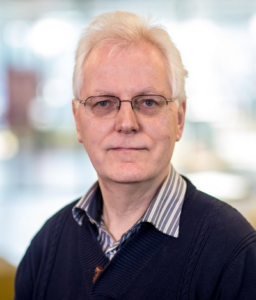 Prof. Dr. Henk Corporaal (TU/e) is Full Professor in Embedded System Architectures at the Eindhoven University of Technology (TU/e) in The Netherlands. He has gained a MSc in Theoretical Physics from the University of Groningen, and a PhD in Electrical Engineering, in the area of Computer Architecture, from Delft University of Technology. Corporaal has co-authored over 500 journal and conference papers. Furthermore he invented a new class of VLIW architectures, the Transport Triggered Architectures, which is used in several commercial products, and by many research groups. His research is on low power multi-processor, heterogenous processing architectures, their programmability, and the predictable design of soft- and hard real-time systems. This includes research and design of embedded system architectures, including CGRAs, SIMD, VLIW and GPUs, on accelerators, the exploitation of all kinds of parallelism, fault-tolerance, approximate computing, architectures for machine and deep learning, optimizations and mapping of deep learning networks, and the (semi-)automated mapping of applications to these architectures.
Prof. Dr. Henk Corporaal (TU/e) is Full Professor in Embedded System Architectures at the Eindhoven University of Technology (TU/e) in The Netherlands. He has gained a MSc in Theoretical Physics from the University of Groningen, and a PhD in Electrical Engineering, in the area of Computer Architecture, from Delft University of Technology. Corporaal has co-authored over 500 journal and conference papers. Furthermore he invented a new class of VLIW architectures, the Transport Triggered Architectures, which is used in several commercial products, and by many research groups. His research is on low power multi-processor, heterogenous processing architectures, their programmability, and the predictable design of soft- and hard real-time systems. This includes research and design of embedded system architectures, including CGRAs, SIMD, VLIW and GPUs, on accelerators, the exploitation of all kinds of parallelism, fault-tolerance, approximate computing, architectures for machine and deep learning, optimizations and mapping of deep learning networks, and the (semi-)automated mapping of applications to these architectures.
 Dr. Federico Corradi (TUE) is an Assistant Professor in the Electrical Engineering Department of the Eindhoven University of Technology, leading the Neuromorphic Edge Computing Systems Lab. Dr. Corradi received a Ph.D. in Neuroinformatics and a Ph.D. from the Neuroscience Centre in Zurich in 2015. He was a Postgraduate at the Institute of Neuroinformatics in 2018. From 2015 to 2018, he was with IniLabs, developing neuromorphic event-based cameras. From 2018 till 2022, he was at IMEC, where he started ultra-low-power neuromorphic ICs design activities. His passion for research brought him back to academia while keeping strong ties with companies.
Dr. Federico Corradi (TUE) is an Assistant Professor in the Electrical Engineering Department of the Eindhoven University of Technology, leading the Neuromorphic Edge Computing Systems Lab. Dr. Corradi received a Ph.D. in Neuroinformatics and a Ph.D. from the Neuroscience Centre in Zurich in 2015. He was a Postgraduate at the Institute of Neuroinformatics in 2018. From 2015 to 2018, he was with IniLabs, developing neuromorphic event-based cameras. From 2018 till 2022, he was at IMEC, where he started ultra-low-power neuromorphic ICs design activities. His passion for research brought him back to academia while keeping strong ties with companies.
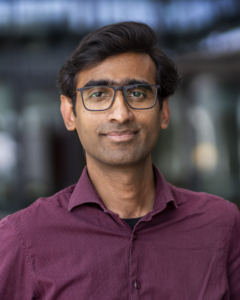 Dr. ir. Manil Dev Gomony (TU/e) received his PhD and Masters in Electrical Engineering from Eindhoven University of Technology in 2015 and Linkoping University in 2010, respectively. He is an assistant professor at TU/e and a researcher at the Bell Laboratories of Alcatel Lucent. His research interests are confined to different aspects of embedded systems such as application-specific processors, ultra-low-power circuits, memory subsystems, scheduling algorithms, and embedded software.
Dr. ir. Manil Dev Gomony (TU/e) received his PhD and Masters in Electrical Engineering from Eindhoven University of Technology in 2015 and Linkoping University in 2010, respectively. He is an assistant professor at TU/e and a researcher at the Bell Laboratories of Alcatel Lucent. His research interests are confined to different aspects of embedded systems such as application-specific processors, ultra-low-power circuits, memory subsystems, scheduling algorithms, and embedded software.
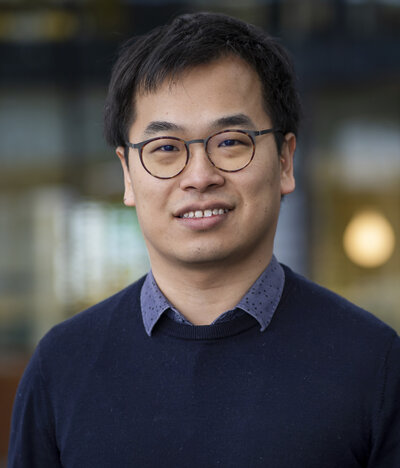 Dr. Bojian Yin (TU/e) is a postdoctoral researcher in the Electrical Engineering Department of the Eindhoven University of Technology at the Neuromorphic Edge Computing Systems Lab. From 2018 to 2022, he conducted doctoral research within a collaborative program in Electrical Engineering and Artificial Intelligence, involving Eindhoven University of Technology, Centrum Wiskunde & Informatica, and Imec. Before joining TU/e as a postdoc, he was a research scientist at Innatera Nanosystems. His research focusses on developing mathematically principled learning algorithms for efficient training of artificial neural networks, with broad applicability across diverse architectures.
Dr. Bojian Yin (TU/e) is a postdoctoral researcher in the Electrical Engineering Department of the Eindhoven University of Technology at the Neuromorphic Edge Computing Systems Lab. From 2018 to 2022, he conducted doctoral research within a collaborative program in Electrical Engineering and Artificial Intelligence, involving Eindhoven University of Technology, Centrum Wiskunde & Informatica, and Imec. Before joining TU/e as a postdoc, he was a research scientist at Innatera Nanosystems. His research focusses on developing mathematically principled learning algorithms for efficient training of artificial neural networks, with broad applicability across diverse architectures.
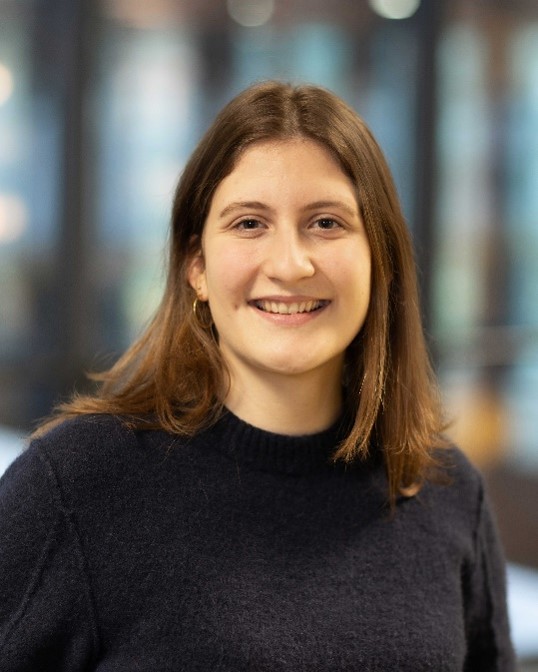 Yvonne Vullers, MSc (TU/e) is a PhD candidate in the Electrical Engineering Department of the Eindhoven University of Technology at the Neuromorphic Edge Computing Systems Lab. She received her MSc in Electrical Engineering in 2024 from TU/e. Her research focusses on the software-hardware codesign of spiking neural networks and analog neuromorphic hardware.
Yvonne Vullers, MSc (TU/e) is a PhD candidate in the Electrical Engineering Department of the Eindhoven University of Technology at the Neuromorphic Edge Computing Systems Lab. She received her MSc in Electrical Engineering in 2024 from TU/e. Her research focusses on the software-hardware codesign of spiking neural networks and analog neuromorphic hardware.
 Technische Universiteit Delft (TUD) is a world-class university, established in 1842. It is the largest and oldest institute of technology in the Netherlands. The Computer Engineering (CE) lab of TUD, chaired by Prof. Hamdioui, performs research and teaches multidisciplinary engineering at the top level from device technology, hardware design, hardware security, test and reliability, software development to computing systems. CE-lab has an extensive experience in electronic components and systems, illustrated by large publications portfolio and projects granted.
Technische Universiteit Delft (TUD) is a world-class university, established in 1842. It is the largest and oldest institute of technology in the Netherlands. The Computer Engineering (CE) lab of TUD, chaired by Prof. Hamdioui, performs research and teaches multidisciplinary engineering at the top level from device technology, hardware design, hardware security, test and reliability, software development to computing systems. CE-lab has an extensive experience in electronic components and systems, illustrated by large publications portfolio and projects granted.
 Prof. Dr. ir. Said Hamdioui (TUD) is Chair Professor on Dependable and Emerging Computer Technologies, Head of the Quantum and Computer Engineering department, and also serving as Head of the Computer Engineering Laboratory (CE-Lab) of the Delft University of Technology, the Netherlands. He is also co-founder and CEO of Cognitive-IC, a start-up focusing on hardware dependability solutions. He has more than 18 years of experience in design, test and reliability of ICs. He received a MSC in EE and PhD both with distinction from TUD. He is currently leading dependable and emerging computing technologies at the Computer Engineering Laboratory of the TUD.
Prof. Dr. ir. Said Hamdioui (TUD) is Chair Professor on Dependable and Emerging Computer Technologies, Head of the Quantum and Computer Engineering department, and also serving as Head of the Computer Engineering Laboratory (CE-Lab) of the Delft University of Technology, the Netherlands. He is also co-founder and CEO of Cognitive-IC, a start-up focusing on hardware dependability solutions. He has more than 18 years of experience in design, test and reliability of ICs. He received a MSC in EE and PhD both with distinction from TUD. He is currently leading dependable and emerging computing technologies at the Computer Engineering Laboratory of the TUD.
 Dr. Anteneh Gebregiorgis (TUD) is an assistant professor in the department of Quantum and Computer Engineering, Faculty of Electrical Engineering, Mathematics and Computer Science, Delft University of Technology, The Netherlands. From 2017 to 2018 he was a visiting scholar with the nanoelectronics research laboratory, Purdue University, where he was working on designing energy-efficient neuromorphic architectures. His current research focuses on reliable and energy-efficient system design for neuromorphic applications using emerging devices and unconventional computing paradigm.
Dr. Anteneh Gebregiorgis (TUD) is an assistant professor in the department of Quantum and Computer Engineering, Faculty of Electrical Engineering, Mathematics and Computer Science, Delft University of Technology, The Netherlands. From 2017 to 2018 he was a visiting scholar with the nanoelectronics research laboratory, Purdue University, where he was working on designing energy-efficient neuromorphic architectures. His current research focuses on reliable and energy-efficient system design for neuromorphic applications using emerging devices and unconventional computing paradigm.
 Centrum Wiskunde & Informatica (CWI) is the national research institute for mathematics and computer science in the Netherlands. CWI conducts pioneering research in mathematics and computer science and transfers new knowledge to society and business. CWI works closely with Dutch universities through semester programmes, joint research programs and an active exchange of scientific talent.
Centrum Wiskunde & Informatica (CWI) is the national research institute for mathematics and computer science in the Netherlands. CWI conducts pioneering research in mathematics and computer science and transfers new knowledge to society and business. CWI works closely with Dutch universities through semester programmes, joint research programs and an active exchange of scientific talent.
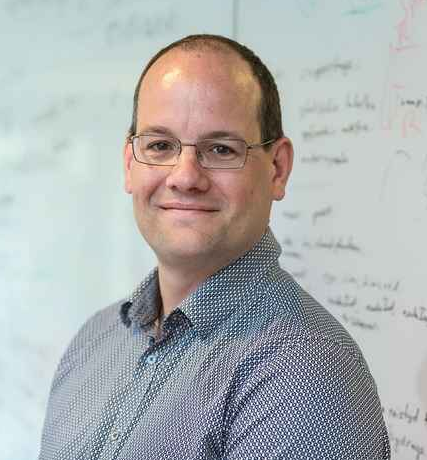 Prof. Dr. Sander Bohté (CWI) is a senior researcher and PI in the CWI Machine Learning group and also a part-time full professor of Cognitive Computational Neuroscience at the University of Amsterdam and a part-time full professor of Bio-Inspired Neural Networks at the Rijksuniversiteit Groningen. He received his PhD in 2003 at CWI. He then did a Post-doc at the University of Colorado in Boulder. In 2004, he rejoined CWI as junior permanent staff to work on distributed spiking neural network models and multi-agent systems In 2016, he co-founded the CWI Machine Learning group, where his research bridges the field of neuroscience with applications thereof as advanced neural networks. His work has been pioneering in the development of advanced and efficient spiking neural networks, including seminal work on supervised learning with spike-time coded networks.
Prof. Dr. Sander Bohté (CWI) is a senior researcher and PI in the CWI Machine Learning group and also a part-time full professor of Cognitive Computational Neuroscience at the University of Amsterdam and a part-time full professor of Bio-Inspired Neural Networks at the Rijksuniversiteit Groningen. He received his PhD in 2003 at CWI. He then did a Post-doc at the University of Colorado in Boulder. In 2004, he rejoined CWI as junior permanent staff to work on distributed spiking neural network models and multi-agent systems In 2016, he co-founded the CWI Machine Learning group, where his research bridges the field of neuroscience with applications thereof as advanced neural networks. His work has been pioneering in the development of advanced and efficient spiking neural networks, including seminal work on supervised learning with spike-time coded networks.
 Roel Koopman, MSc (CWI) is a PhD candidate in the Machine Learning group at CWI. He received his MSc in Artificial Intelligence from Radboud University in 2024, specializing in Cognitive Computing. His research focuses on developing learning methods and neural network architectures that better exploit the algorithmic and hardware capabilities offered by neuromorphic computing.
Roel Koopman, MSc (CWI) is a PhD candidate in the Machine Learning group at CWI. He received his MSc in Artificial Intelligence from Radboud University in 2024, specializing in Cognitive Computing. His research focuses on developing learning methods and neural network architectures that better exploit the algorithmic and hardware capabilities offered by neuromorphic computing.
 Innatera Nanosystems is a Dutch semiconductor company that aims to simplify sensor data analytics in power constrained devices. It develops ultra-efficient microprocessors that mimic the brain’s mechanisms for processing fast information streams from multiple sensors. Innatera’s technology is a critical enabler for next generation devices in the IoT, wearable, embedded, and automotive domains. Over multiple generations of silicon, Innatera’s R&D activities have validated immense power-performance benefit of continuous-time analog-mixed signal approaches in processing sensor data. The results from the SNS project will shape Innatera’s product offering and facilitate improved market access and adoptability.
Innatera Nanosystems is a Dutch semiconductor company that aims to simplify sensor data analytics in power constrained devices. It develops ultra-efficient microprocessors that mimic the brain’s mechanisms for processing fast information streams from multiple sensors. Innatera’s technology is a critical enabler for next generation devices in the IoT, wearable, embedded, and automotive domains. Over multiple generations of silicon, Innatera’s R&D activities have validated immense power-performance benefit of continuous-time analog-mixed signal approaches in processing sensor data. The results from the SNS project will shape Innatera’s product offering and facilitate improved market access and adoptability.
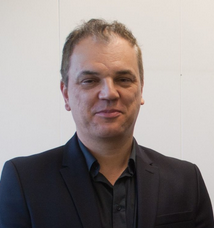 Dr. Amir Zjajo (Innatera) is co-founder of Innatera Nanosystems B.V., and serves as its Chief Scientist. Prior to that, he was a member of research staff in the Mixed Signal Circuits and Systems Group at Philips Research Laboratories between 2000 and 2006, and subsequently, with Corporate Research at NXP Semiconductors until 2009. He joined the Delft University of Technology the same year, and was responsible for leading research into intelligent systems within a range of EU-funded research projects. He is the author of several books on circuits and systems, and he is the editor of Real-Time Multi-Chip Neural Network for Cognitive Systems (River Publishers, 2019). Dr. Zjajo has published more than 90 papers in referenced journals and conference proceedings in the areas of mixed-signal VLSI design, and biomedical and neuromorphic circuits and systems, and holds more than 20 patents or patent pending. He received the M.Sc. and DIC degrees from the Imperial College London, London, U.K., in 2000, and the PhD. degree from Eindhoven University of Technology, Eindhoven, The Netherlands in 2010, all in electrical engineering. His research interests include energy-efficient circuit and system design for on-chip machine learning and inference, and bionic electronic circuits for autonomous cognitive systems. Dr. Zjajo won best/excellence paper award at BioDevices’15 and LifeTech’19. He is a senior member of IEEE.
Dr. Amir Zjajo (Innatera) is co-founder of Innatera Nanosystems B.V., and serves as its Chief Scientist. Prior to that, he was a member of research staff in the Mixed Signal Circuits and Systems Group at Philips Research Laboratories between 2000 and 2006, and subsequently, with Corporate Research at NXP Semiconductors until 2009. He joined the Delft University of Technology the same year, and was responsible for leading research into intelligent systems within a range of EU-funded research projects. He is the author of several books on circuits and systems, and he is the editor of Real-Time Multi-Chip Neural Network for Cognitive Systems (River Publishers, 2019). Dr. Zjajo has published more than 90 papers in referenced journals and conference proceedings in the areas of mixed-signal VLSI design, and biomedical and neuromorphic circuits and systems, and holds more than 20 patents or patent pending. He received the M.Sc. and DIC degrees from the Imperial College London, London, U.K., in 2000, and the PhD. degree from Eindhoven University of Technology, Eindhoven, The Netherlands in 2010, all in electrical engineering. His research interests include energy-efficient circuit and system design for on-chip machine learning and inference, and bionic electronic circuits for autonomous cognitive systems. Dr. Zjajo won best/excellence paper award at BioDevices’15 and LifeTech’19. He is a senior member of IEEE.
 IMEC performs world-leading research in nano-electronics and nano-technology in global partnerships in ICT, healthcare and energy in order to deliver industry relevant solutions. With its staff of more than 2000 people including industrial residents and guest researchers, IMEC focuses on those domains where it sees a growth potential and where it can differentiate itself from other research institutes. Stitching IMEC Nederland (IMEC-NL) is located at the High Tech Campus in Eindhoven, in The Netherlands, and is part of Holst Centre, an independent open-innovation R&D centre that develops technologies for Thin-Film Flexible electronics, wearable, as well as sensors solutions for IoT. The technologies developed in the self-healing are a spot-on for IMEC roadmap. This includes novel advanced nanomaterial that brings benefits in terms of energy but are challenging to be integrated in robust computing. architecture. The advent of self-healing mechanism at multiple level of the stack can enable the use of non-volatile emerging nanotechnologies that are currently being investigated and developed at IMEC.
IMEC performs world-leading research in nano-electronics and nano-technology in global partnerships in ICT, healthcare and energy in order to deliver industry relevant solutions. With its staff of more than 2000 people including industrial residents and guest researchers, IMEC focuses on those domains where it sees a growth potential and where it can differentiate itself from other research institutes. Stitching IMEC Nederland (IMEC-NL) is located at the High Tech Campus in Eindhoven, in The Netherlands, and is part of Holst Centre, an independent open-innovation R&D centre that develops technologies for Thin-Film Flexible electronics, wearable, as well as sensors solutions for IoT. The technologies developed in the self-healing are a spot-on for IMEC roadmap. This includes novel advanced nanomaterial that brings benefits in terms of energy but are challenging to be integrated in robust computing. architecture. The advent of self-healing mechanism at multiple level of the stack can enable the use of non-volatile emerging nanotechnologies that are currently being investigated and developed at IMEC.
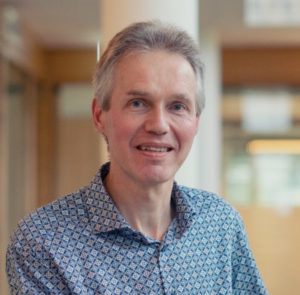 Dr. ir. Mario Konijnenburg (IMEC) received an M.S. degree in electrical engineering from Delft University of Technology in The Netherlands in 1993. A Ph.D. degree was received from Delft University of Technology in 1999 on Automatic Test Pattern Generation for Sequential Circuits. He joined Philips Research / NXP Semiconductors and worked on methodologies to improve testability of designs. Currently, he is chip architect and R&D manager of the IC-design group at IMEC in Eindhoven, The Netherlands, targeting chip research for bio-medical applications covering SoC design, sensors, stimulators, power, and (RF) communication.
Dr. ir. Mario Konijnenburg (IMEC) received an M.S. degree in electrical engineering from Delft University of Technology in The Netherlands in 1993. A Ph.D. degree was received from Delft University of Technology in 1999 on Automatic Test Pattern Generation for Sequential Circuits. He joined Philips Research / NXP Semiconductors and worked on methodologies to improve testability of designs. Currently, he is chip architect and R&D manager of the IC-design group at IMEC in Eindhoven, The Netherlands, targeting chip research for bio-medical applications covering SoC design, sensors, stimulators, power, and (RF) communication.
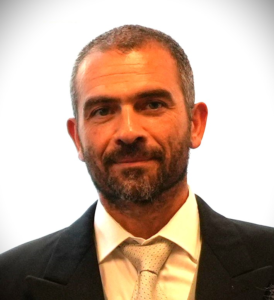 Dr Manolis Sifalakis (IMEC) is a senior researcher at IMEC-Netherlands, in the Neuromorphic and Hardware efficient AI group. He has computer science (Uni of Edinburgh, UK) and computing systems engineering (Tech Uni of Piraeus, Greece) formal background. He received his PhD degree in 2008 at the Uni of Lancaster (UK), in the topic adaptive and autonomic systems. In 2009 he worked as a post-doc at the Uni of Basel (CH), where he did pioneering research in distributed computing systems, dynamic scheduling algorithms, and chemical computing. In 2015 he joined IBM research (CH), where he worked on machine learning optimization and acceleration in cloud computing, and in natural language processing. Since 2018 he has been working at IMEC pioneering work on spiking neural networks (SNNs), neuromorphic sensing and sensor-fusion, and in general hardware-aware machine learning and deep learning, and has been contributing to architecting neuromorphic accelerators/co-processors.
Dr Manolis Sifalakis (IMEC) is a senior researcher at IMEC-Netherlands, in the Neuromorphic and Hardware efficient AI group. He has computer science (Uni of Edinburgh, UK) and computing systems engineering (Tech Uni of Piraeus, Greece) formal background. He received his PhD degree in 2008 at the Uni of Lancaster (UK), in the topic adaptive and autonomic systems. In 2009 he worked as a post-doc at the Uni of Basel (CH), where he did pioneering research in distributed computing systems, dynamic scheduling algorithms, and chemical computing. In 2015 he joined IBM research (CH), where he worked on machine learning optimization and acceleration in cloud computing, and in natural language processing. Since 2018 he has been working at IMEC pioneering work on spiking neural networks (SNNs), neuromorphic sensing and sensor-fusion, and in general hardware-aware machine learning and deep learning, and has been contributing to architecting neuromorphic accelerators/co-processors.
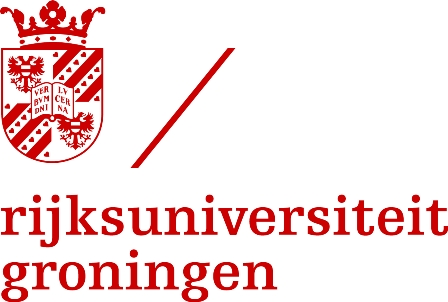 The University of Groningen is an internationally oriented university with a rich academic tradition. Since the establishment in 1614, the university has brought forward striving academics, like the first female student, the first Dutch astronaut and various Nobel prize winners. The university itself has had various names since 1614: Hogeschool te Groningen, Universiteit van Stadt en Lande, Academia Provincalis Groningae et Omlandiae, Universitas Imperialis/ Université Impériale (Imperial University), Academia Groningana (Academy of Groningen), Rijkshogeschool Groningen and since 1876: Rijksuniversiteit Groningen. The RUG has approximately 6,000 employees, of which approximately 3,500 are academic staff. After the University of Amsterdam and Utrecht University, the RUG is the third largest university in the Netherlands in terms of size and, after the University Medical Center Groningen (UMCG), the largest employer in the province of Groningen. The main location of the university in Groningen is the Academy Building on Broerstraat. The faculties are spread across the city center and the Zernike complex on the north side of the city. An exception is Campus Fryslân, which is located in the former Beursgebouw in Leeuwarden. Plans to set up a “branch campus” in Yantai, China, were canceled in January 2018.
The University of Groningen is an internationally oriented university with a rich academic tradition. Since the establishment in 1614, the university has brought forward striving academics, like the first female student, the first Dutch astronaut and various Nobel prize winners. The university itself has had various names since 1614: Hogeschool te Groningen, Universiteit van Stadt en Lande, Academia Provincalis Groningae et Omlandiae, Universitas Imperialis/ Université Impériale (Imperial University), Academia Groningana (Academy of Groningen), Rijkshogeschool Groningen and since 1876: Rijksuniversiteit Groningen. The RUG has approximately 6,000 employees, of which approximately 3,500 are academic staff. After the University of Amsterdam and Utrecht University, the RUG is the third largest university in the Netherlands in terms of size and, after the University Medical Center Groningen (UMCG), the largest employer in the province of Groningen. The main location of the university in Groningen is the Academy Building on Broerstraat. The faculties are spread across the city center and the Zernike complex on the north side of the city. An exception is Campus Fryslân, which is located in the former Beursgebouw in Leeuwarden. Plans to set up a “branch campus” in Yantai, China, were canceled in January 2018.
 Prof. Elisabetta Chicca (RUG) received a Ph.D. in Natural Science from the Swiss Federal Institute of Technology Zurich (ETHZ, Physics department) and in Neuroscience from the Neuroscience Center Zurich in 2006. E. Chicca has carried out her research as a Postdoctoral fellow (2006-2010) and as a Group Leader (2010-2011) at the Institute of Neuroinformatics (University of Zurich and ETH Zurich) working on development of neuromorphic signal processing and sensory systems. Between 2011 and 2020 she lead the Neuromorphic Behaving Systems research group at Bielefeld University (Faculty of Technology and Cognitive Interaction Technology Center of Excellence, CITEC). In 2021 she joined the Zernike Institute for Advanced Materials at the University of Groningen as full professor and chair of Bio-Inspired Circuits and Systems. Her current interests are in the development of CMOS models of cortical circuits for brain-inspired computation, learning in spiking CMOS neural networks and memristive systems, bio-inspired sensing (vision, touch, olfaction, audition, active electrolocation) and motor control. She combines these research approaches with the aim of understanding neural computation by constructing behaving agents which can robustly operate in real-world environments. She is recipient of EU H2020 funding in various programs (ICT, MSCA, FETPROACT), NWO and DFG funding. E. Chicca contributed to the creation and launching of a new IOP journal (Nueromorphic Computing and Engineering) to promote multi-disciplinary publications in her field and futher supports the journal as Executive Editorial Board member.
Prof. Elisabetta Chicca (RUG) received a Ph.D. in Natural Science from the Swiss Federal Institute of Technology Zurich (ETHZ, Physics department) and in Neuroscience from the Neuroscience Center Zurich in 2006. E. Chicca has carried out her research as a Postdoctoral fellow (2006-2010) and as a Group Leader (2010-2011) at the Institute of Neuroinformatics (University of Zurich and ETH Zurich) working on development of neuromorphic signal processing and sensory systems. Between 2011 and 2020 she lead the Neuromorphic Behaving Systems research group at Bielefeld University (Faculty of Technology and Cognitive Interaction Technology Center of Excellence, CITEC). In 2021 she joined the Zernike Institute for Advanced Materials at the University of Groningen as full professor and chair of Bio-Inspired Circuits and Systems. Her current interests are in the development of CMOS models of cortical circuits for brain-inspired computation, learning in spiking CMOS neural networks and memristive systems, bio-inspired sensing (vision, touch, olfaction, audition, active electrolocation) and motor control. She combines these research approaches with the aim of understanding neural computation by constructing behaving agents which can robustly operate in real-world environments. She is recipient of EU H2020 funding in various programs (ICT, MSCA, FETPROACT), NWO and DFG funding. E. Chicca contributed to the creation and launching of a new IOP journal (Nueromorphic Computing and Engineering) to promote multi-disciplinary publications in her field and futher supports the journal as Executive Editorial Board member.